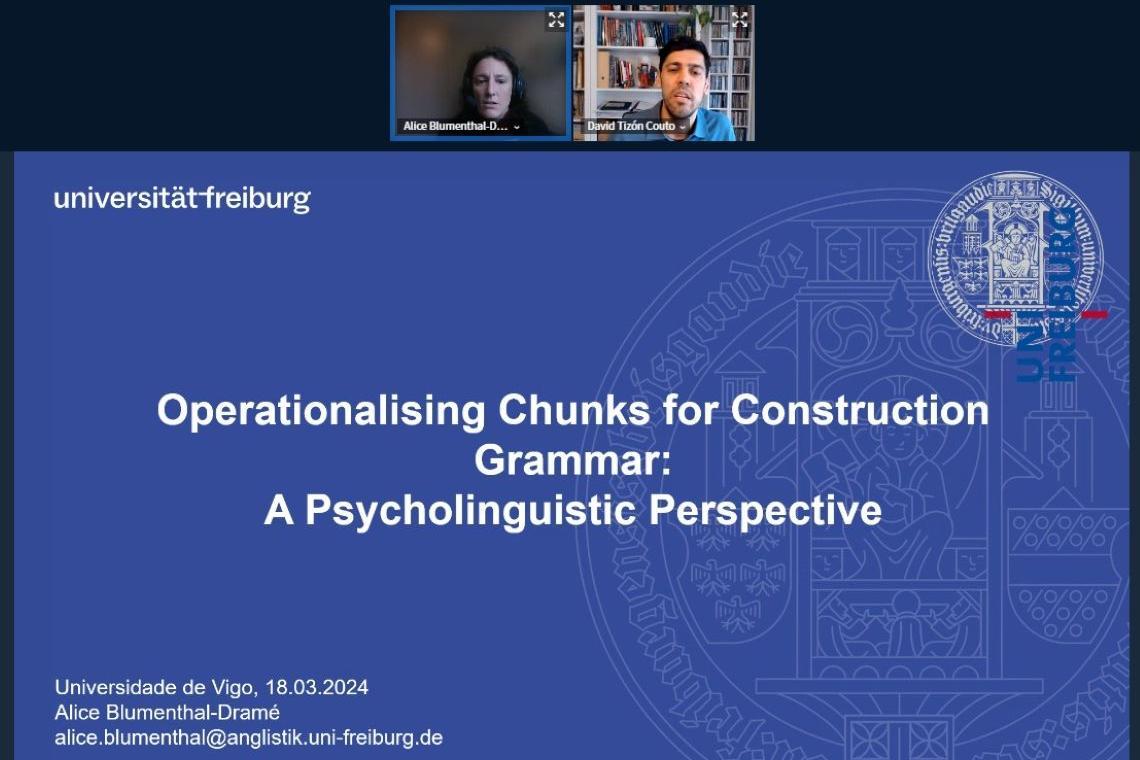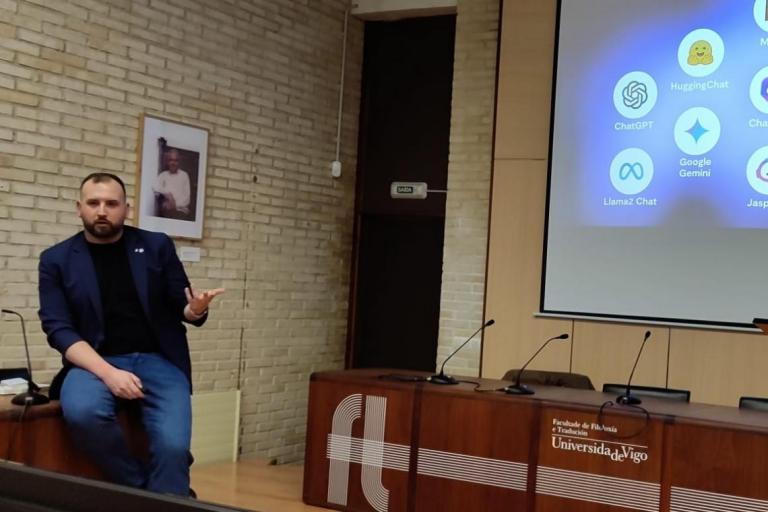On 18 March 2024, Alice Blumenthal-Dramé (Associate Professor in English Linguistics at Albert-Ludwigs-Universität Freiburg, Germany) gave a talk within the IDAES doctorate programme. Her talk explored how the cognitive realism of linguistic constructions can be put to the test by drawing on the cognitive notion of chunking.
She started by arguing that chunks —defined as units of mental storage and processing— represent the natural cognitive counterpart to linguistic constructions as defined in Usage-Based Construction grammar. This perspective allowed her to apply existing knowledge on cognitive chunks to operationalise constructions in psycholinguistic terms. Building on this foundation, she showcased a range of experiments investigating the chunk status of constructions across different levels of the constructional hierarchy (e.g., complex words like government, collocations like vast majority and semi-abstract sequences like I don’t Vmental). Throughout the discussion, she underscored theoretical and practical pitfalls that should be avoided in conducting psycholinguistic research on linguistic constructions, such as the misconception that increased speed and processing ease necessarily index mental construction status. Last, she assessed the validity of corpus frequency data as a proxy for chunking in individual cognition, emphasizing the variability in chunking that stems from factors like linguistic experience and memory capacity.







